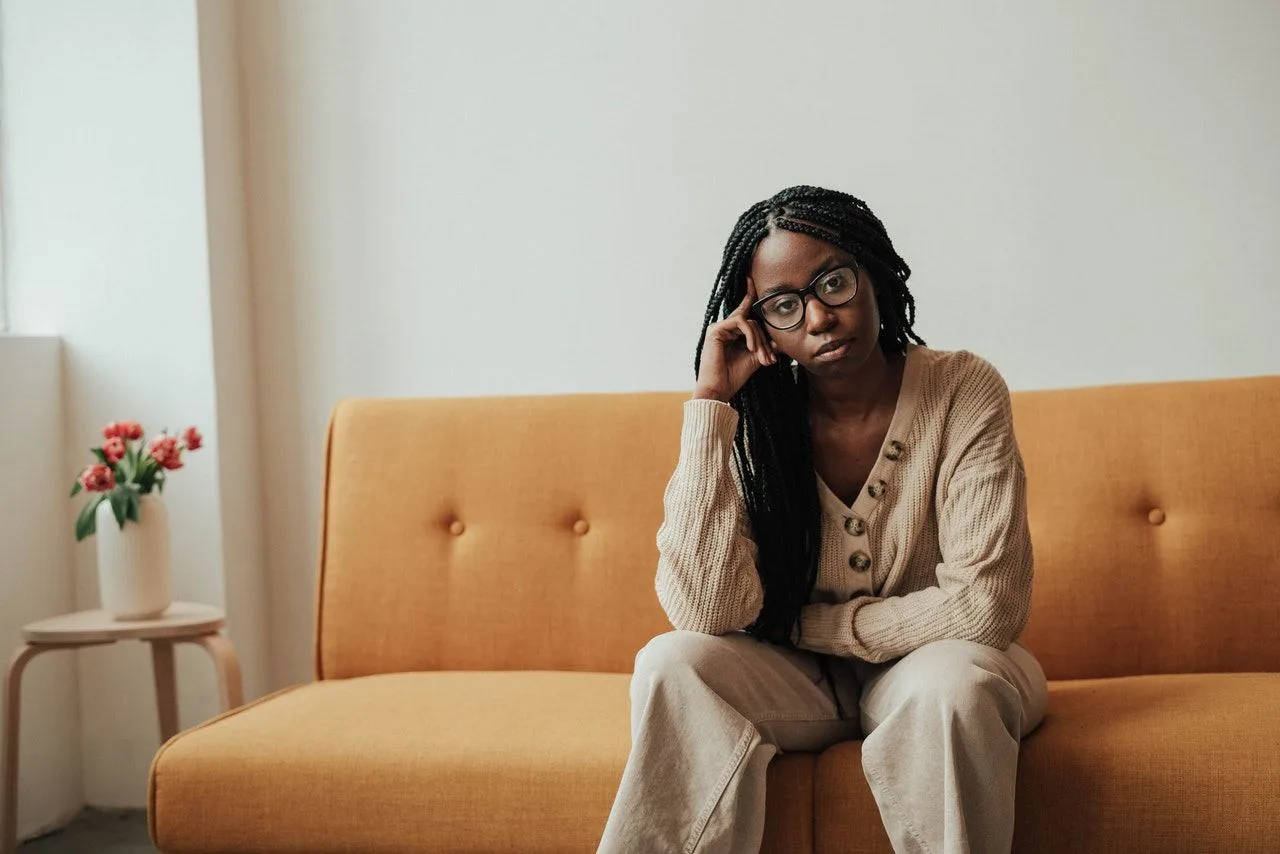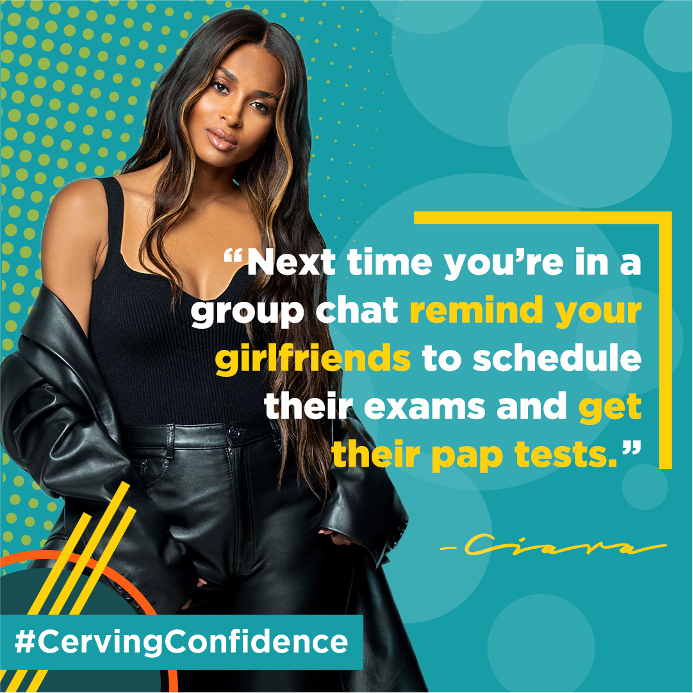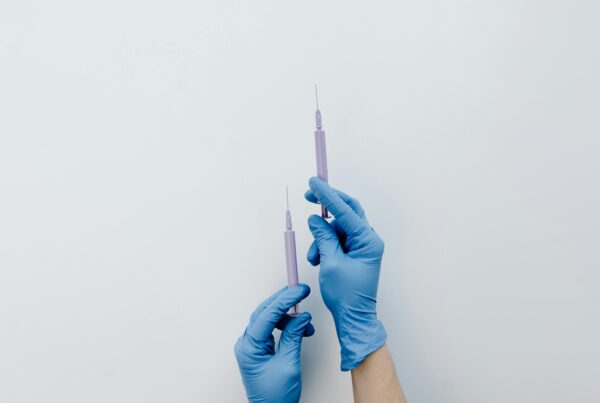When was the last time you went for a pap smear? Did you know that regular Pap screening can help to decrease cervical cancer incidence and mortality by at least 80%?
It’s no wonder Grammy winner Ciara is doing her part to spread awareness about cervical cancer and HPV screening, especially when she, as a black woman, faces a much higher risk for the disease.
Ciara Declares War on Cervical Cancer
The cervix is the neck of tissue that connects the vagina and uterus. It helps to keep your uterus free of bacteria, and is also responsible for vaginal discharge – this cleans your vagina. Cervical cancer affects the cells of the cervix.
“The greatest thing for me was being educated on how cervical cancer is impacting black women in particular… I don’t think that what I do is just about singing and dancing and getting cute in my glam and all that stuff. All that is fun and amazing and a big part of why I love what I do, but I believe in the power of a platform,” the two-time BET award winner told Healthline.
How does cervical cancer affect black women?

Photo by Dziana Hasanbekava from Pexels
- In the United States, Black women are the second most likely demographic (after Hispanic women) to develop cervical cancer.
- African-American women are 80% more likely to die from cervical cancer than white women.
- In the United Kingdom, black women are 40% more likely to develop cervical cancer and twice as likely to die from it.
- In South Africa, black women are almost six times more likely to die of cervical cancer than white women
- The five-year survival rates of black and coloured South African women are significantly worse than those of their white and Indian counterparts.
“There’s no biological or genetic determinant for this,” says Linda Goler Blount, president and CEO of the Black Women’s Health Imperative, the brand that’s in charge of the campaign. They reached out to Ciara to be the face of the campaign, as they knew how important it was to reach black women.
“While Black women may tend to get cervical cancer a little bit younger, they’re getting it diagnosed and detected at a later stage when it’s harder to treat.”
Defeating cervical cancer
“The care that black women have access to is often lower-quality care than that for white women. And, structural biases in the way healthcare is delivered means black women are frequently forced to make decisions to forgo or delay screenings due to concerns about cost, transportation, childcare, and the lack of adequate healthcare coverage,” Linda told Healthline.
As such, she created Cerving Confidence, an extension of Project Health Equality. Linda hopes the new campaign will help encourage black women to take care of their cervical health and prioritize self-care.
“Self-care is the best and there is nothing better than loving on yourself and being on top of your game and being able to be confident in every aspect of your life in every way… my greatest mission is to impact as many lives as possible, especially for the black community, as we know this is the area that’s hit the hardest [by cervical cancer],” said Ciara.
How can I reduce my risk?
1. Get regular screenings – please
“[Get] it done, it’s so easy… I think sometimes psychologically for us as women we’re like ‘ugh, here we go,’ but it goes so fast when you go, and just get it done and being able to know that and understand how simple it is and being able to check off this one box is huge,” Ciara said to Healthline.

blkwomenshealth/Twitter
There are two tests that women should be getting if they want to reduce their risk for cervical cancer;
- Pap smear: This test detects any changes in the cervix, such as the presence of cancerous cells. You should have a pap smear every 3 years.
- HPV test: HPV is a virus that can cause cervical cancer. Women over the age of 30 should test for HPV with their Pap smear.
2. Practice safe sex
It’s recommended that you:
- Limit your number of sexual partners
- Always use condoms and dental dams
- Avoid sex with people who have had many partners
- Avoid sex with people who display symptoms of an STI/STD (such as genital warts)
3. Don’t smoke
Bottom lone
We each need to be responsible for our health and do our part when it comes to reducing our risk for vertical cancer. We only have one life to live and we need to take care of it well.
“After having kids, I’ve been way more intentional when it’s about my life,” Ciara says. ”It’s important for me to be here for my daughter and my daughter’s daughters—if she has a daughter one day—and for many other young girls around the world.”
References
Olorunfemi, G., Ndlovu, N., Masukume, G., Chikandiwa, A., Pisa, P. T., & Singh, E. (2018). Temporal trends in the epidemiology of cervical cancer in South Africa (1994-2012). International journal of cancer, 143(9), 2238–2249. https://doi.org/10.1002/ijc.31610
https://www.cancer.net/cancer-types/cervical-cancer/screening-and-prevention





![women [longevity live]](https://longevitylive.com/wp-content/uploads/2020/01/photo-of-women-walking-down-the-street-1116984-100x100.jpg)










